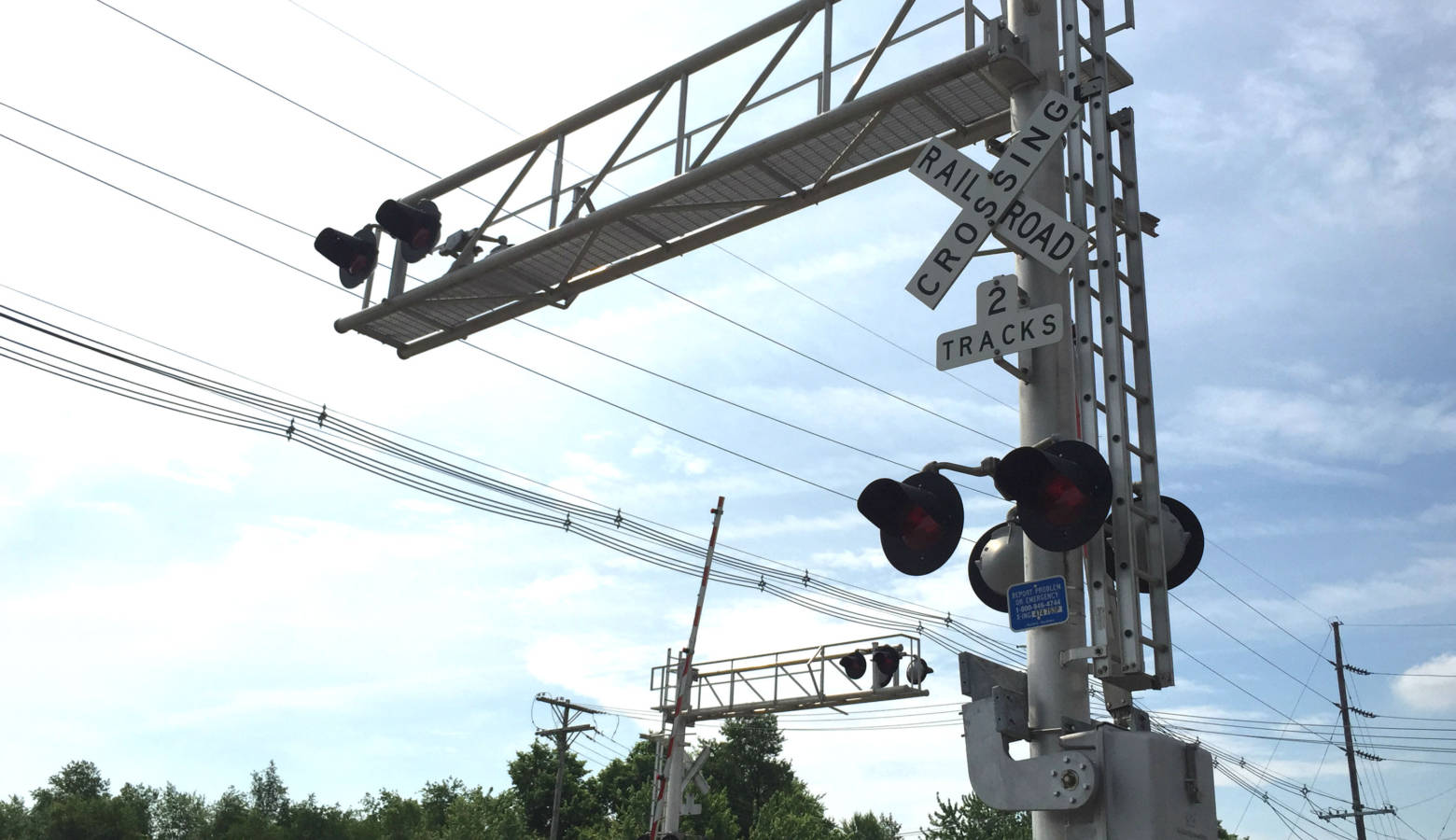Indiana Supreme Court Sides With Railroads, Rules Blocked Crossing Ban Bad For Business

The Indiana Supreme Court has ruled local governments can no longer fine railroad companies for stopping on tracks, regardless of how long a train may block a crossing.
The state’s highest court ruled a long-standing Indiana statute was regulating the railroad business. That’s banned by a federal law – the Interstate Commerce Commission Termination Act, or ICCTA.
What Federal Law Says About Railroads
Solicitor General Thomas Fisher says the state believes ICCTA applies only to economic regulations.
“This is an area where, given the local safety considerations and the local traffic control considerations, it plainly falls within the ambit of traditional areas of state regulation,” Fisher says.
The Indiana Supreme Court disagreed. The justices saw ICCTA as having a broader scope, and that the enforcement of the state statute would, in Chief Justice Loretta Rush’s words, “substantially interfere with railroad operations.”
So Fisher says it’s up to the federal government.
“A law that doesn’t directly govern trains but that protects public safety more generally, and a train happens to be involved – that’s still an area where a state law can provide some relief,” Fisher says. “But, trying to regulate trains directly, unfortunately is not something states are going to have any success doing.”
Norfolk Southern contends that to follow the blocked-crossing rule, the company may have to shorten or speed up trains. In an emailed statement, a company spokesperson says the railroad is quote-“very cognizant of the inconveniences that can result if a train is stopped too long.” But the note also says the court’s decision won’t affect current work with local communities to resolve those issues – where, they note, Norfolk Southern employees live and work.
The City of Frankfort
Communities such as Frankfort, for example. Railroads are ingrained in the city’s history – so much so that it named a new, much-publicized downtown housing project ‘Nickel Plate Flats,’ in honor of the old Nickel Plate rail line.
But despite the rich rail history in Frankfort, Mayor Chris McBarnes says trains are one of his biggest problems.
“We’re cut in half north and south on a daily basis when it comes to our rail,” McBarnes says. “We have a hospital on one side, a retirement home on the other. We have fire stations on one side, we have residences on the other. We have police officers that get blocked and aren’t able to make it to a call or back up officers.”
That crossing is just west of a Norfolk Southern rail yard, and McBarnes says its location affects more than simply traffic.
“It being so close to our industrial park, and so close to the downtown, it has a negative impact on public safety and economic development, along with citizen convenience,” McBarnes says.
Business Near The Crossing
One of the big drivers of economic development in Frankfort is NHK Seating of America – the company makes car seats, which it sends to the large Subaru plant just up the road in Lafayette. NHK has two plants on one side of the tracks, its main facility on the other.
“So when the railroad tracks are blocked, it can literally shut my production line down, usually within 20 to 30 minutes,” says Plant Manager Richard Reck. “And it does happen, on occasion, more often than we’d like to see.”
Local Trax
So if drivers can’t go through the crossing, maybe they could go over it. Or at least, that’s what Mayor McBarnes is hoping for with the Local Trax program. It’s a matching grant fund through the Indiana Department of Transportation designed to reduce the number of at-grade highway-rail crossings and enhance safety at others.
It’s very competitive – INDOT received 28 applications, totaling about $370 million in requests. That’s nearly three times what the state can award at the end of November. McBarnes hopes Frankfort’s situation stands out.
Norfolk Southern is also working with INDOT on the Local Trax grant program. And while ripples of the Supreme Court’s decision are felt around the Hoosier State, blocked crossings are holding up drivers all around the Midwest.
But until the federal government decides to weigh in – which isn’t a given – rural communities will search anywhere they can for a light at the end of the tunnel.
